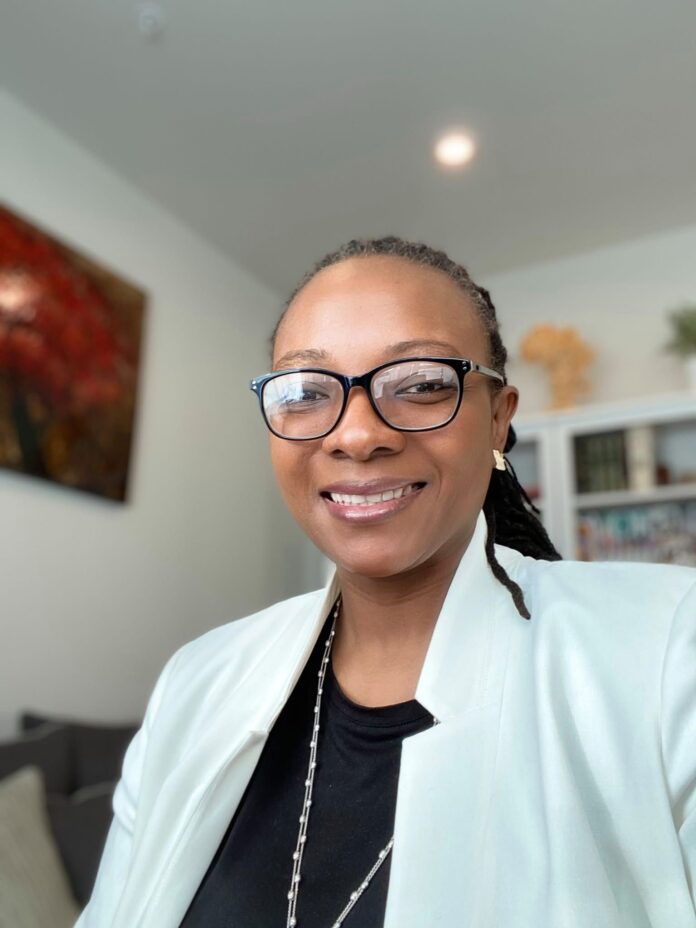by Awa Conteh
This week on Gambian Trailblazers, we highlight the remarkable journey of Dr. Aminata Sillah, a Gambian academic and policy expert whose work in governance and development has made a lasting impact. With nearly two decades of experience in academia, government, and international development, Dr. Sillah has dedicated her career to finding practical solutions to social and economic challenges. Her journey is one of passion, resilience, and a deep commitment to improving systems that affect people’s daily lives.
Growing up in The Gambia, Dr. Sillah was always curious about how policies shape societies. She saw how decisions at the government level impacted access to education, healthcare, and economic opportunities. This curiosity led her to study Business Administration and Legal Studies at Temple University, but it wasn’t long before she realized that her true calling was in governance and policy. She wanted to contribute to building systems that worked for people rather than against them and be part of the solution.
“At my core, I’m a deeply committed advocate for social justice and equitable development. This isn’t just a job for me—it’s a calling”, she told The Alkamba Times.
Determined to deepen her understanding, Dr. Sillah pursued a Ph.D. in Public Administration at the University of North Texas. Her research focused on governance, public policy, and institutional development—key areas that influence how societies function. She knew that academic knowledge alone was not enough; real change required bridging the gap between theory and practice.
Over the years, Dr. Sillah has worn many hats—professor, policy consultant, and advisor to governments and international organizations. Her work spans multiple sectors, from governance reform to diaspora engagement and youth entrepreneurship. As a professor, she mentored and trained future policymakers, equipping them with the skills needed to create meaningful change. But she didn’t want to stay within the walls of academia. She moved into policy consulting, working on projects that directly impact communities.
“You need both perspectives. It’s one thing to write policies, but it’s another to ensure they work in the real world”, Dr Sillah stressed.
One of her most significant contributions has been in diaspora engagement. As an advisor to The Gambia’s Ministry of Foreign Affairs, she played a key role in developing strategies to involve Gambians abroad in national development. She believes that the diaspora is not just a source of financial remittances but also a valuable resource for knowledge-sharing, innovation, and investment. She is convinced that many Gambians living abroad have expertise in various fields, and creating avenues for them to contribute meaningfully can help drive national progress.
“We need to move beyond seeing the diaspora as just a source of money. They can be partners in innovation and progress”, she said.
Dr. Sillah is also a strong advocate for youth empowerment and economic development. She has worked on policies to increase access to financial resources for young entrepreneurs, recognizing that the country’s future depends on its ability to harness the potential of its youth. Through her leadership at the Global Youth Innovation Network (GYIN), she has helped thousands of young entrepreneurs and agripreneurs across Africa access funding, mentorship, and market opportunities. She understands that financial support alone is insufficient—young people need the right environment and support system to succeed.
Aminata said, “The right support at the right time can change everything for a young entrepreneur.”
Our trailblazer’s commitment to building strong institutions goes beyond economic development. Whether working with governments, universities, or NGOs, she emphasizes the importance of long-term strategies over short-term fixes. In her view, progress comes from strengthening institutions and ensuring policies are implemented effectively. This requires investing in systems that work rather than relying on quick solutions that don’t address the root causes of issues.
Dr. Sillah has also been a strong voice in academia, teaching in the U.S. and The Gambia. She has observed how students in different regions engage with political science and policy studies. In the U.S., students can access advanced research tools and simulation exercises. At the same time, in The Gambia, learning is often more hands-on, with students engaging directly with real-world governance issues. She believes both approaches have value, but the key is ensuring that students connect what they learn in the classroom to what happens in their communities.
As a published author, Aminata has contributed to essential discussions on governance, public service, and institutional development. Her book, Public Sector Volunteer Management: Best Practices and Challenges, highlights how volunteers can play a key role in governance by filling capacity gaps and improving service delivery in public institutions.
“We don’t lack talent or potential—we just need better systems that allow people to succeed,” she stated.
Dr. Sillah believes The Gambia’s future lies in institutional reforms, economic diversification, and human capital development. She stresses the importance of transparency, accountability, and inclusivity in governance. She sees a country’s entire potential, but for that potential to be realized, leaders must focus on long-term strategies rather than short-term gains.
For young Gambian women who aspire to work in academia, policy, or international development, Dr. Sillah challenges them to be bold, persistent, and purpose-driven. She encourages them to seek mentorship, continue learning, and believe in their ability to lead and make a difference.
“Seek mentors, keep learning, and never underestimate the power of your voice,” Dr. Sillah advised.
As we conclude this episode of Gambian Trailblazers, Dr. Aminata Sillah’s journey powerfully reminds us that real change requires knowledge, action, and commitment. Her work continues to inspire future generations, showing that one person can make a lasting impact on governance, development, and society with the right mindset and dedication.





